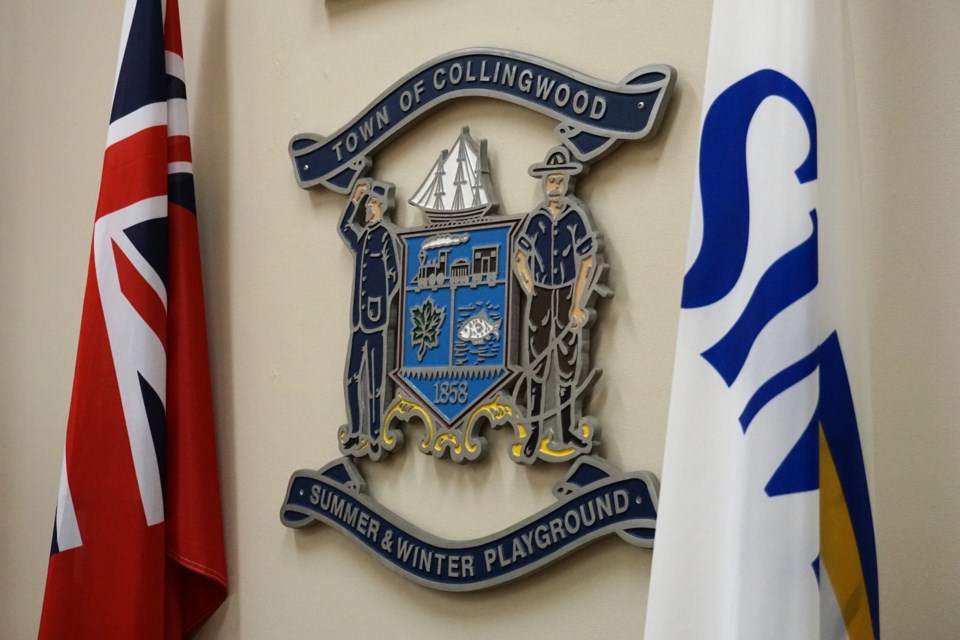After two years of a development moratorium in Collingwood, there’s a light at the end of the tunnel.
During Monday’s (May 16) council meeting, the town's chief administrative officer, Sonya Skinner, told councillors the final two appeals to the town’s interim control bylaw were finishing up their process through the Ontario Land Tribunal (OLT), headed toward settlement.
Once the terms of settlement are complete and the appeals withdrawn, the town can revoke the bylaw, she said.
“We have an exciting update today,” Skinner told councillors. “Once these appeals are resolved, the next step in our process would be an OLT order which would remove our interim control bylaw and thus the need to continue with exemptions to it.
“Our town would then fully operate as intended,” she said.
During a seven-hour meeting on April 26, 2021, council voted in favour of a one-year (minimum) moratorium on new construction through an interim control bylaw due to concerns about water availability in Collingwood.
As a result of the decision, the town no longer issued building permits for any construction that would require additional draw on the drinking water supply unless they were granted an exemption to the bylaw by a vote of council.
At the time of the vote, the town indicated it was a one-year moratorium with the possibility of another year's extension while the town worked on new policies for allocating water to development.
Three appeals to the zoning bylaw amendment at the OLT put a halt on lifting the development freeze at the one-year mark in April 2022. The Planning Act dictates that the control bylaw (and therefore the development freeze) would continue to be in effect until the appeals were handled.
An appeal by Aird & Berlis on behalf of the owners of 121 Hume St. was dropped back in 2022. Another appeal by Aird & Berlis, on behalf of Blue Mountain Centre, was recently withdrawn. The last appeal, filed by Amber Stewart Law on behalf of John Welton/Sunvale Homes, is currently going through a settlement process with the town. One of the stipulations includes steps to withdraw their appeal.
If all goes well, the town’s director of planning, Summer Valentine says the interim control bylaw could be lifted by the end of June.
“If both are withdrawn as we’ve been working with the appellants on, they would be resolved and the (interim control bylaw) would cease to be in effect,” Valentine told CollingwoodToday following the meeting. “I’m hoping by the end of June, if not earlier.”
For developers and land owners, the main change they’ll notice following the lifting of the interim control bylaw is they will no longer have to apply for an exemption to the bylaw when bringing their projects to council.
Policies that will remain in place to protect the town’s limited water supply are three-fold.
One of those parts, the zoning bylaw amendment, will provide the town with a safeguard where building permits cannot be issued unless adequate availability of water and wastewater capacity is confirmed by the municipality.
The second part is the servicing capacity allocation policy (or SCAP), which is a points system that assists town staff in allocating the town’s limited water and wastewater capacity to new developments.
The policy is a merit-based system that assigns points (out of a possible 95 points) to a development applying for a building permit based on the inclusion of elements in their proposal such as green technology, affordable housing, mixed uses, water conservation measures, employment generation, natural heritage protection, walkability, active transportation and intensification. New developments are expected to hit 50 per cent through the SCAP points system in order to be eligible for a building permit.
“The SCAP was reviewed earlier this year and we made small changes to make it easier for low-risk developments to move forward,” said Valentine.
The third part is changes to the Official Plan, which is currently still being worked on with a second draft planned to come before councillors later this year.
Valentine says there will still be limits to how much water capacity can be allocated annually before the new water treatment plant expansion is completed, which is expected in 2026. According to most recent estimates by town staff, the town has approximately 450 "single dwelling unit equivalents" of water capacity it can distribute annually through 2024.
And after two years of working through creating the SCAP, Valentine says the town is now well-prepared moving forward to balance the needs of residents with the requests of developers and landowners wanting to draw from the town’s water supply.
“I’m feeling really pleased for our community. I think we’ve got a good program in place that looks at capacity and the community values and interests in a reasonable way,” said Valentine. “We have a process for large-scale (developments) to come to council and a streamlined process for small businesses, entrepreneurs and home owners.”
